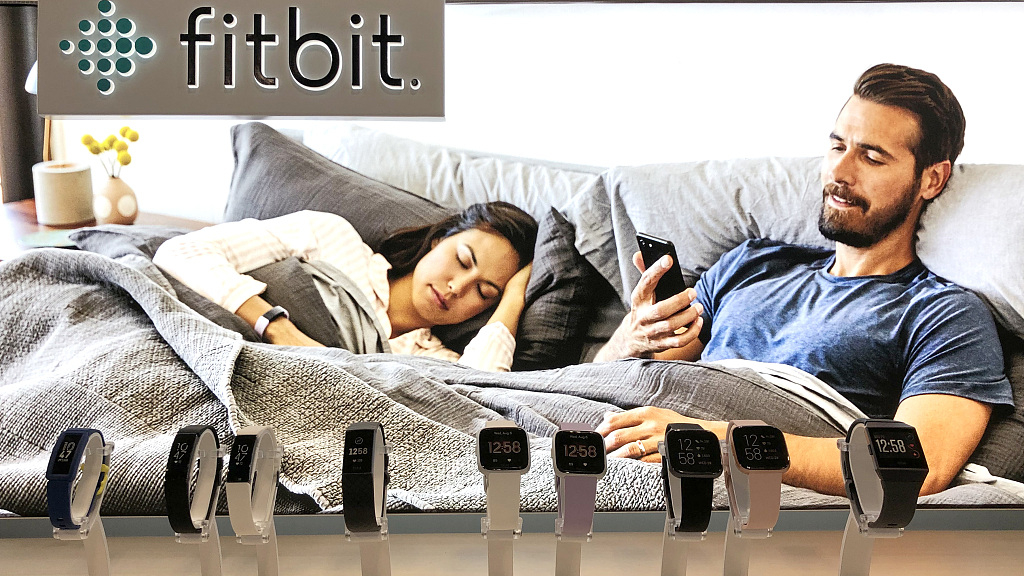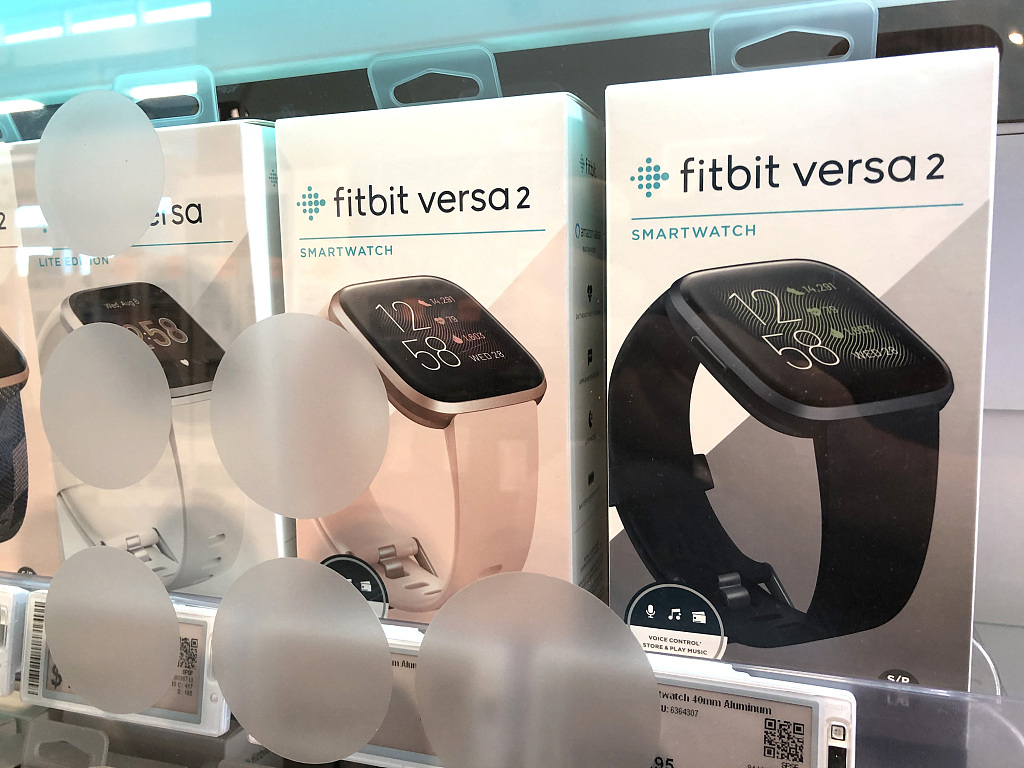
Editor's note: Hou Ruoshi was an executive member of the Council of the WTO Rules Research Institute at China Law Society, and also a former research fellow of the Institute of International Studies of Tsinghua University. The article reflects the author's views and not necessarily those of CGTN.
It is reported that on November 1, Google's parent company Alphabet announced that it would acquire Fitbit, the company that produces smart watches and activity trackers, for roughly 2.1 billion U.S. dollars. The move ramps up Google's fight against Apple and means the competition has effectively expanded from the area of operating systems to that of hardware.
But did Google make this move just to compete with Apple? Sources say Chinese brands Xiaomi and Huawei have also made great achievements in wearable devices after years of intensive research and development. In the first quarter of 2019, the top five wearable device brands in the Chinese market are Apple, Xiaomi, Huawei, Samsung, and Fitbit. With the acquisition of Fitbit, Google may become a serious competitor to the top four.
So what exactly is behind the acquisition deal between Google and Fitbit?
All enterprises are market-oriented. In the short to medium term, Google and Fitbit aim to compete with other wearable device manufacturers as recently articulated by Rick Osterloh, Google's senior vice president of devices and services and James Park, Fitbit co-founder and CEO. Of course, in their global battle, the U.S. market is the most important one to secure. The Chinese market is also an extremely important one.
Fitbit's decision with regards to the acquisition deal with Google is not surprising because it is actually losing the Chinese market amidst the fierce competition with Xiaomi and Huawei. As mentioned above, it ranks behind Chinese brands Xiaomi and Huawei. In the first half of 2019, Fitbit's net loss reached 148 million U.S. dollars, with only about 28 million active users worldwide. In terms of smart watches, the prices of Chinese brands are only one-third of that of Fitbit.
After Google's acquisition of Fitbit, Google will continue to have to deal with the competition from Xiaomi and Huawei in the Chinese market. With China's labor cost and industrial chain advantages, Chinese enterprises are most certainly going to win the battle. As indicated by an American analyst, neither Fitbit nor Google's Pixel or Nest is a big player in the Chinese market. Even Fitbit's leading position in the activity trackers category is challenged by Huawei and Xiaomi.
So if Google is not in a good position to compete with Chinese brands in the Chinese market, are there other reasons for it to purchase Fitbit?
At the moment, both Google and Apple are focusing on personalized health solutions. Fitbit's greatest value is its health data. Its trackers can monitor steps walked, calories burned and distance traveled, as well as steps climbed, quality of sleep and heart rate.

Fitbit smartwatches are displayed at a Best Buy store on November 01, 2019 in San Rafael, California. /VCG Photo
Fitbit smartwatches are displayed at a Best Buy store on November 01, 2019 in San Rafael, California. /VCG Photo
Fitbit's exercise and sleep database is one of the largest health databases in the world. It also has a massive health and fitness social network that offers personalized health advice to its users. Google's acquisition of Fitbit serves to leverage valuable data to enhance its competitiveness in the wearable device market.
Besides this, does Google has a longer-term goal? Smartphones have become the core products in this digital world, but any product has a life cycle. Some people are already wondering what devices will replace smartphones, the same way smartphones replaced a variety of electronic devices.
Google's move may indicate that smart wearables may be the choice of the future. In addition to tracking users' activity and health, smart watches also offer features like payments, communication and music.
Some experts pointed out those wearable devices are personal digital devices closest to the human body, and also the main devices for the development of artificial intelligence. As wearables strengthen the relationship between human and technology and become extensions of the human body, they are likely to replace smartphones in the future.
Some people predict that just by implanting wearable smart device chips into the human body, some daily life needs can be met. Some even say that it could become part of the human genome and play a role in human reproduction and evolution. If we look at smart wearable devices from these perspectives, Google's acquisition is an extremely ambitious move.
It will, of course, take some time for smartwatches to replace smartphones. But at present, there are data security concerns when a few enterprises monopolize the vast health data. Recently, Tom Watson, the just resigned UK's Labour party deputy leader, called for blocking Google's acquisition of Fitbit, for the move was a "data grab."
In the era of digital technology, information equals resources, just like natural resources in the era of industrialization. Personal information not only concerns personal privacy but also represents personal wealth. To protect the rights and interests of consumers, governments around the world should exercise a strict supervision over business activities involving personal information, especially those related to personal health data. Google's acquisition of Fitbit should thus be regulated.
(If you want to contribute and have specific expertise, please contact us at opinions@cgtn.com.)